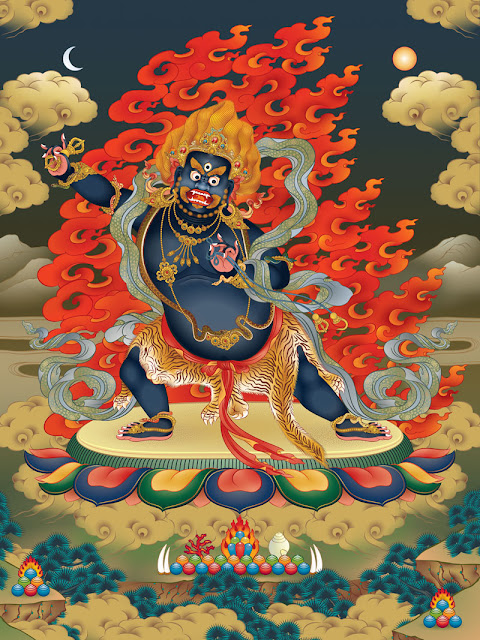Shinjin and Social Injustice
Shinjin, often translated as "true entrusting" in the Pure Land tradition, is more than private faith; it is a radical inner liberation that resists external control. In a world governed by fear, manipulation, and power hierarchies, Shinjin affirms that salvation does not come from systems, authorities, or status—it arises from turning inward and entrusting fully in Amida Buddha’s boundless compassion. This simple, direct awakening undermines the authority of regimes that thrive on obedience, guilt, and conformity. Shinjin proclaims that liberation is freely given, not earned, and cannot be taken away. For the oppressed, this is an act of spiritual defiance: to entrust oneself to a Buddha beyond the reach of kings and tyrants. In Shinjin, one lives with dignity not granted by society but revealed through awakening. It says, “I am already saved,” and in doing so, breaks the illusion that worldly power holds the keys to worth or freedom.
How does shinjin inform our response to perceived social injustice?
Excellent and timely question. To explore how Shinjin—the entrusting heart-mind of the Pure Land tradition—informs our response to social injustice, we need to look at Shinjin not just as a devotional state, but as a radical realization that transforms how we see the world and ourselves.
Shinjin and Social Injustice
Responding from Faith, Not Fear
1. What is Shinjin?
In the context of Shin Buddhism (Jōdo Shinshū) and broader esoteric Pure Land views, Shinjin refers to the awakening of the "true entrusting heart"—a direct, settled trust in Amida Buddha's boundless compassion and the inevitability of awakening for all beings.
This is not belief in the conventional sense. It’s a deep existential shift: we awaken to the truth that our own ego-efforts cannot save us, and that liberation comes through surrender to the working of boundless compassion and wisdom (Amida, Dharmakāya, or the awakened nature itself).
“Shinjin is not something we produce through self-power; it is the wisdom of the Buddha awakening within us.” — Shinran Shōnin
How Shinjin Changes Our Response to Injustice
2. Shinjin Undermines Moral Self-Righteousness
Without Shinjin, our protest can become a theater of ego:
I am right, they are wrong.
We are good, they are evil.
But Shinjin dismantles the illusion of self and separateness. When we realize that even our anger, pride, and fear are part of the deluded human condition—and are held with infinite compassion—we cannot see others (even oppressors) as fundamentally different from ourselves.
We no longer protest to assert ourselves, but to embody compassion and uphold the dignity of all beings.
3. Shinjin Restores Faith in the Power of Compassion
When faced with systemic injustice, despair and cynicism are common. Shinjin reminds us that even amid samsara’s darkest moments, the working of Amida (awakening) never ceases. This doesn’t make us passive—it makes us fearless. Why?
Because we are no longer depending on the outcome. We act not to win, but to witness truth and to serve sentient beings.
“I know I am foolish and blind, yet I am embraced just as I am.”
— This insight empowers us to extend that embrace outward, toward both victim and perpetrator.
4. Shinjin Eliminates Dualistic Thinking
Perceived injustice is still part of the dream (maya). Shinjin opens the “esoteric Pure Land” view:
Samsara and Nirvana are not two.
Amida’s land is not elsewhere—it is our awakened mind in this very body and world.
In this light, compassionate action becomes nembutsu—each step, chant, or protest an expression of gratitude, not aggression.
The Shinjin Way of Protest
Without Shinjin | With Shinjin |
Dualism: Us vs. Them | Nonduality: All beings are embraced |
Ego-based righteousness | Humility and shared karmic burden |
Despair at suffering | Faith in boundless compassion at work |
Protesting to win | Acting from gratitude and fearless compassion |
Closing Reflection
“When we realize Shinjin, we cease to judge the world by self-centered standards. We do not look away from injustice, but neither do we forget that all beings, even the most ignorant, are embraced by the Buddha’s vow.” — Esoteric commentary on Shinjin and Kaji (grace)
To respond to social injustice with Shinjin is to step beyond reactivity and into the Bodhisattva’s vow, held by Amida’s light, engaging not to divide the world into heroes and villains, but to call all beings home to the heart of compassion.

.jpg)

